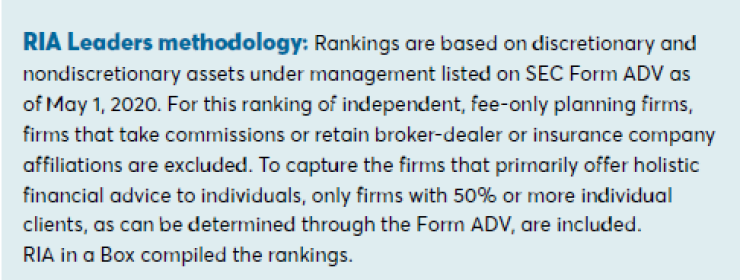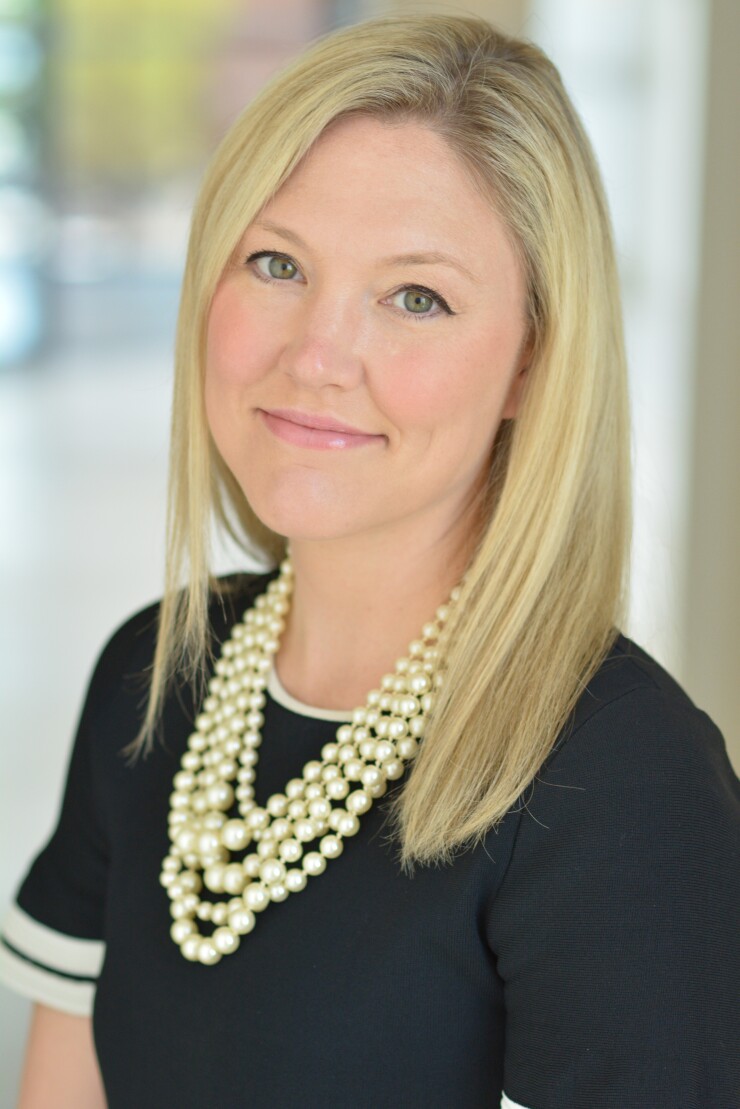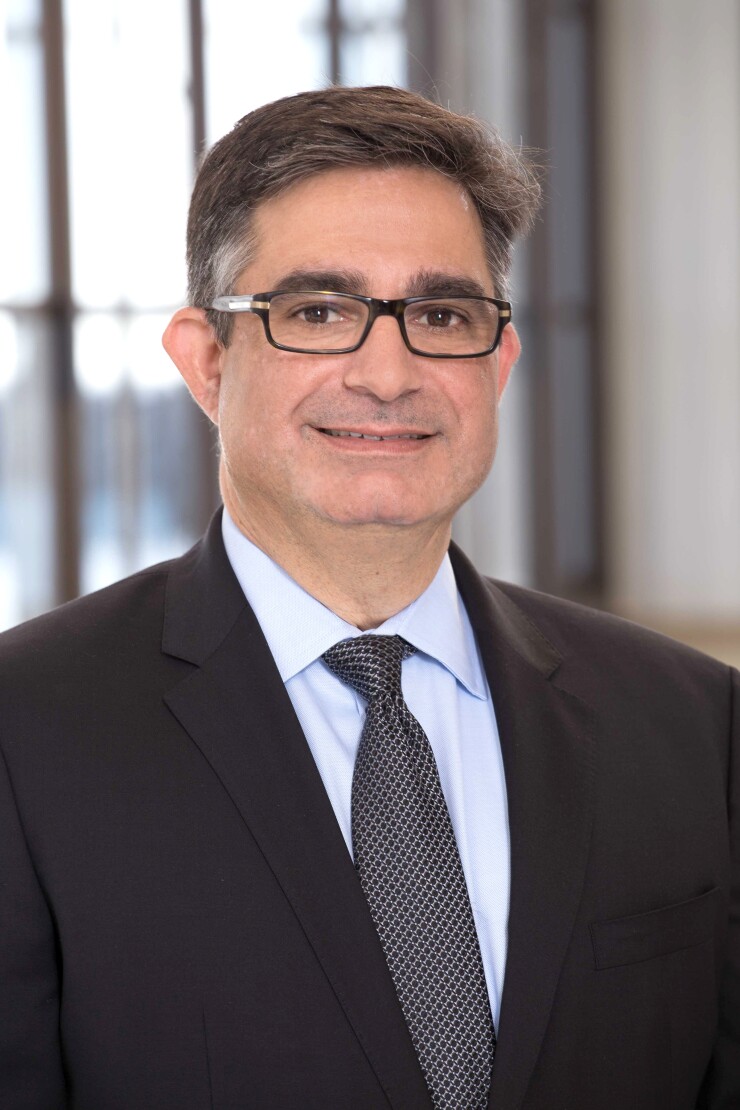Here’s what we know: The unceasing turmoil that has become synonymous with the year 2020 has put unprecedented strains on advisory firms.
In an instant, practices were forced to eliminate the in-person contact with clients that is so central to their businesses and transition to near-universal telework. All the while they had to serve jittery, sometimes panicked, clients while simultaneously keeping their firm culture intact.
But many unknowns: What will the industry look like when the pandemic has passed? Judging by the firms chosen for Financial Planning’s 7th RIA Leaders ranking, the answer seems to be: probably better. Definitely profoundly altered.
Firms that landed on our RIA Leaders list in 2020 have employed creativity, flexibility and determination to thrive this year. A short list of upheavals includes a worldwide pandemic and attendant economic collapse, mass protests for racial justice and a hypercharged political climate. Advisors have onboarded innovative new methods of connecting with clients and co-workers, seized opportunities to build up their businesses and forged deeper bonds with the investors they serve.
“The opportunity is to be a consistent source of stability for our clients,” says Stacy Murchison, chief marketing officer at Chevy Chase Trust, the No. 1 RIA on the list. “That means being available, answering tough questions, reworking financial plans and guiding clients through whatever financial roadblocks they may encounter.”

A likely long-term result of the pandemic is that firms will continue to embrace new technology faster, experts say, and practices will be quicker to respond to significant cultural shifts.
“The day that they shut the schools down in the Midwest, we went into attack mode,” says Jeff Thomasson, CEO of Oxford Financial Group, No. 5 on this year’s list.
”We sent everybody home except for the check processor,” Thomasson says. “[We] made them take their computers and said, ‘We’re done coming into the office — indefinitely.’ That was on a Thursday afternoon, everyone was gone on Friday and Monday we were all dialed in remotely.”
Indeed, with few exceptions, advisors and clients have come to accept video conferencing as a way of life — and in some cases, this new emphasis on remote interaction has actually meant increased communication for clients and advisors alike.
“It’s easier to connect with people on quick thoughts ... without feeling like it’s such a formal process,” says Kara Duckworth, managing director of client experience at Mercer Global Advisors, which clocked in at No. 3 on this year’s list. “Immediate feedback is, I think, a model we’re going to see going forward.”
In the first months of the crisis, Duckworth says, advisors became “sounding boards,” fielding frequent questions in response to some worrisome item that a client read or saw in the news, as opposed to connecting with them on the normal quarterly meeting or the semimonthly phone call.
“I honestly think that’s a really good thing for the industry. It’s created deeper connections for us, not just as advisor and client, but as people who care about each other. That, I hope, is going to keep going forward,” Duckworth adds.

When work-at-home became the norm, advisory firms, along with the rest of the business world, quickly discovered that technologies such as Zoom could reach a broader audience with less logistical hassle, expanding communication with clients and prospective clients, as well as in recruiting new talent.
Kelly Maregni, chief advisory officer at Pathstone, No. 9 on the list, says her firm has embraced the technology to support onboarding new advisors and support staff — 11 new recruits since the pandemic’s outbreak.
The firm also coordinated a virtual retreat for a family it serves, complete with guest speakers on estate planning and philanthropy sandwiched between virtual yoga instruction and wine-tasting sessions.
Similarly, the firm has rolled out novel in-house initiatives to keep employees engaged and to recreate “that little piece of interaction when you’re in the office,” Maregni says. Those include a firmwide fitness challenge, virtual company outings and a new platform called StarPath.
Company employees can access StarPath to post short videos of themselves singing, dancing with their families or just being wacky.
“We’re looking for ways to be innovative in keeping our team together,” Maregni says, anticipating that the post-COVID office will accommodate far more telework than it did before the pandemic.
As for the contours of the post-COVID office, Maregni sees video conferences with clients and some of Pathstone’s in-house digital interactions remaining as a way to keep advisors and staff in closer touch across the firm’s seven offices at a time when she expects many people will continue to work more from home.

“It’s not going to go back to the way it was, and that’s OK,” she says. “I think there will be less travel, because we’ve realized how successful virtual meetings can be.”
EP Wealth Advisors, No. 15 on this year’s list, has been maintaining employee morale by sending gift cards for food delivery and organizing virtual lunches. Patrick Goshtigian, EP’s president, says that, although the gift cards won’t last forever, the firm’s intranet and in-house social blog — new technologies whose development and adoption were greatly accelerated by the pandemic — will remain in regular use, and that many employees will likely continue to work remotely, at least for a few days a week.
Likewise, EP’s expanded online seminars for clients have been a hit, and the firm has shown how it can handle employee onboarding and acquisitions in a virtual world.
Tech initiatives
Other firms on the list say numerous COVID-19 inspired technology initiatives they launched or accelerated, such as enhanced client portals, transaction-authorization systems and back-office support processes, will likely remain even after the coronavirus threat diminishes.
Another lasting effect of the pandemic will be the expectation of higher levels of service, predicts Mark Alcaide, senior managing director of the compliance consultancy Foreside Financial Group.
“Personalized service will prevail. Increased contact, through digital mediums, will prevail,” Alcaide says.
In late spring, as lockdown mandates were initially — and, in some cases, temporarily — easing in many states, firm leaders at Oxford Financial Group took the high-touch approach to heart. They voted to roughly triple the firm’s budget for chartered air travel, and began flying to meet people in person — masked and socially distanced — in outdoor eateries, or in a client’s backyard.
”We’ve spent I don’t know how many hundreds of thousands of dollars in the last 12 weeks, but I don’t care,” Thomasson says.
Oxford opted to up the charter budget given concerns about the health risks of flying commercially, and there are some destinations off limits for in-person meetings, either because of travel restrictions or social unrest in cities such as Chicago, Thomasson says.
But for many of the clients visited by a firm advisor, those meetings were the first in-person sit-downs they’d had with anyone since March, which sent a clear signal of how much Oxford values the relationship.
A surge in M&A?
Following a brief lull in RIA mergers and acquisitions in the second quarter, David DeVoe, CEO of the RIA consultancy DeVoe & Company, is forecasting a “surge phase” of brisk M&A activity for several quarters that should eventually settle down to normal.
“The normal trajectory for M&A in this industry, however, is likely to run at a 30% year-over-year increase for several years,” DeVoe says. The factors fueling all those transactions — an aging advisor force, a sprawling industry, poor succession planning — aren’t all 2020’s fault, but the pandemic “will add a new layer of activity to this already growing swell,” according to DeVoe & Company’s latest RIA M&A Deal Book.
That tracks with what Maregni is seeing anecdotally.
“A lot of owners of RIA firms — they don’t want to go through another downturn like this,” she says.
Her firm acquired Cornerstone Advisors, a $4 billion RIA, in July. ”We are in growth mode,” Maregni says.
Advisory industry historians will be able to look back at 2020 as proof-of-concept — or not — for the viability of working remotely.

Judging in the middle of a crisis is trickier, but going by the actions and results achieved by this year’s RIA Leaders, we can glean the following: that if technology can’t replicate the experience of an in-person meeting, it can come closer than most had imagined; that in many cases, advisors are seeing opportunities to improve client interactions and deliver a more effective service model.
A new normal
Likewise, while many of the advisors on this year’s list long to work alongside their colleagues again, they also acknowledge that some things have changed unalterably — and that could turn out to be the good and bad news.
“Ultimately we’ll go back to some of the same methodologies, the same work habits, but a lot of these online tools will serve us well,” Goshtigian says. “Hopefully we take the best of the virtual world and then marry it with the in-office world of the past.”







